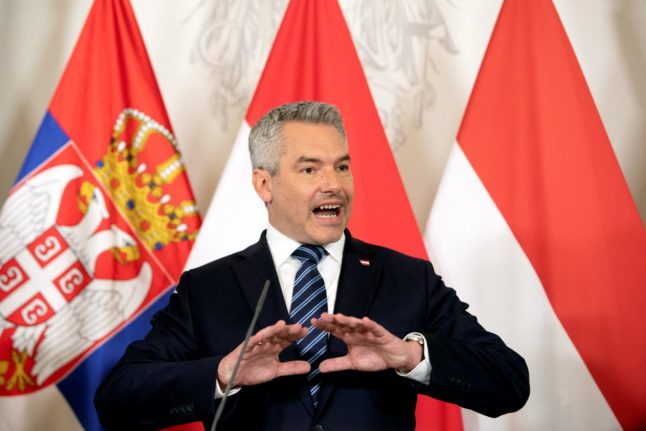Austria’s staff shortage is mainly caused by generational issues – as the baby boomer generation retires – and fewer people are joining the work market. The situation is more pronounced in certain professions, which are particularly demanding (or have been more demanding in recent years), such as healthcare and education.
The police are also urgently looking for new recruits throughout Austria. It is reducing admission criteria and going even further by announcing recruitment bonuses for police officers who recruit new workers.
The Ministry of Interior is considering offering bonuses of between €500 to €1,000 in the “referral” program.
READ ALSO: Do foreigners in Austria have to carry ID?
There are also changes in the admission procedure itself. Those who fail once can reapply more quickly than before (currently, they need to wait one year). Further details are to be announced in the coming weeks.
According to Austrian media, there was talk that the sports test, which has a 26 percent failure rate, could be cancelled. An indication in this direction is that the Ministry of the Interior has already announced that other qualities will count in the future selection process. For example, the Ministry is increasingly seeking “competencies in the area of communication and conflict resolution.”
Additionally, newcomers will have fewer hurdles. They’ll no longer have to have a driver’s licence already – and will even be reimbursed up to €1,400 for successfully getting a driver’s licence if they also complete their basic police training.
READ ALSO: How critical is the situation in Austrian hospitals?
Another perk is intended to make the police service more attractive to recruits.
The Ministry of the Interior plans to introduce a measure to reimburse police students for the cost of a Klimaticket (Austria’s federal transport ticket) as part of an effort to enhance recruitment, according to a statement to APA.
However, the move has faced criticism from the FSG trade union. Hermann Greylinger, head of FSG, acknowledged that their request had been partially granted but emphasised that extending the benefit to all police officers would have been “more favourable”, as expressed by the union representatives.
READ ALSO: ‘I won’t give up my nationality’: Why foreigners choose not to become Austrian
Under the new arrangement, all police students in Austria, including administrative trainees and apprentices, will have their Klimaticket expenses covered by the ministry during their two-year basic training. The implementation of this regulation is expected in the summer of 2023, confirmed spokesperson Markus Haindl.
What won’t change?
There is one requirement to being a police officer in Austria that the government has no intention of changing: the citizenship requirement.
Currently, police recruits need to hold Austrian citizenship and foreigners, even those born and raised in Austria, are not allowed to apply for a position within the police force.
According to Statistik Austria, Austria has more than 1.6 million (data from mid-2022) foreign citizens living in the country.



 Please whitelist us to continue reading.
Please whitelist us to continue reading.
Member comments